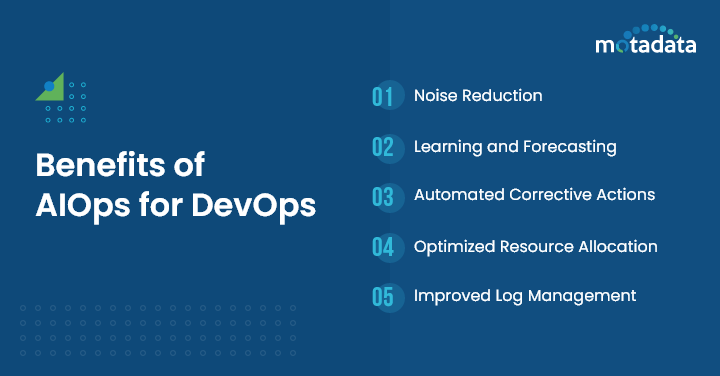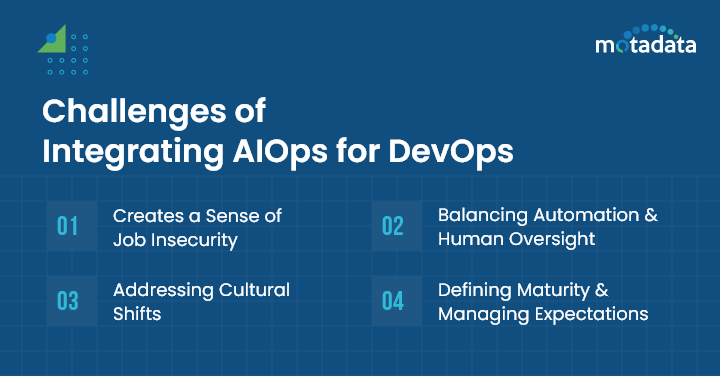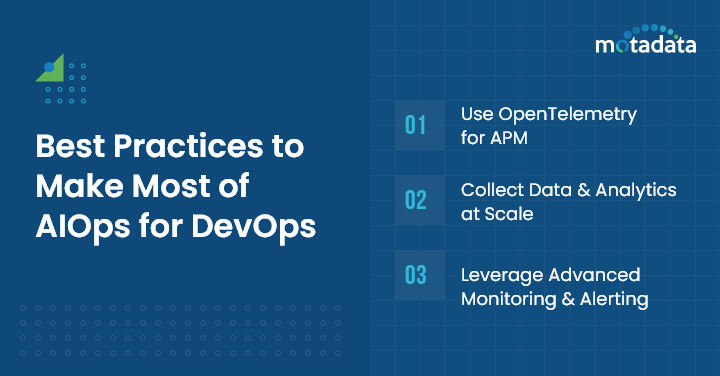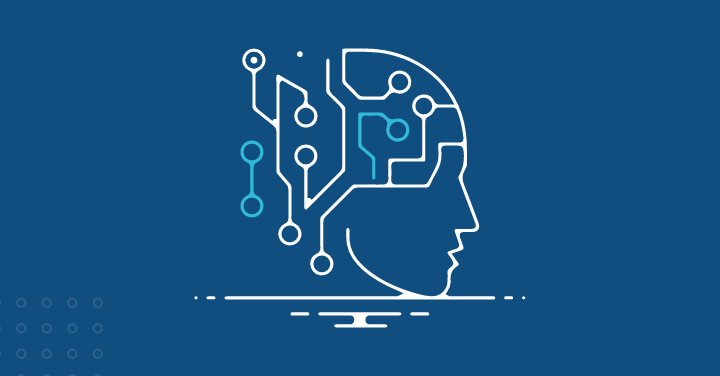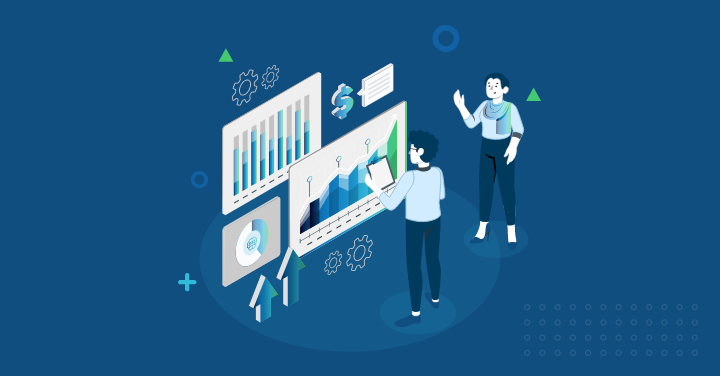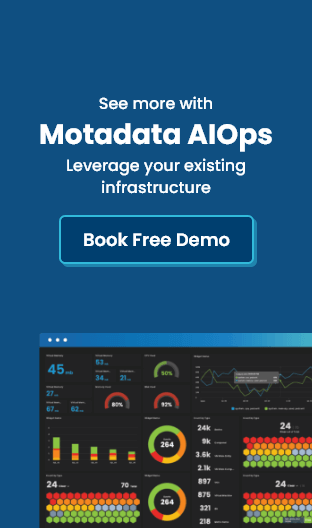AIOps for DevOps. This is a phrase that you’ll hear a lot often in the coming years. Leveraging AIOps is becoming an emerging practice for DevOps. And why not? After all, AIOps offers so many benefits for DevOps, making it a must have for every business.
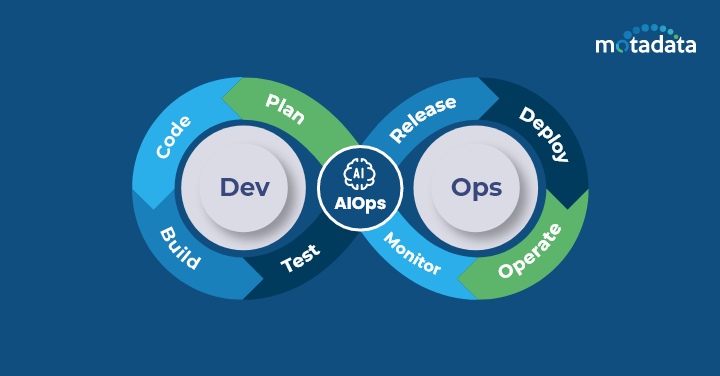
But what exactly are these benefits?
To know more, keep reading this blog where we will discuss everything about AIOps for DevOps including its:
- Benefits
- Challenges
- Best Practices
What is AIOps?
AIOps is an umbrella term which involves automation of identification and resolution of IT issues through:
- Artificial Intelligence
- Machine Learning
- Big Data Analytics
Apart from this, the primary objective of AIOps involves:
- Automating IT Operation
- Identifying Patterns
- Augmenting Common Processes
AIOps brings together performance management, service management, event management, and automation for realizing continuous improvement and insights.
What is DevOps?
DevOps combines both development (Dev) and operations (Ops) to unite people, process, and technology in:
- Application Planning
- Application Development
- Application Delivery
- Application Operations
DevOps ensures collaboration and coordination among previously siloed roles such as:
- Development
- IT Operations
- Quality Engineering
- Security
The main objective of implementing DevOps Transformation is to make software production and deployment both automated and repeatable. DevOps also helps organizations increase their speed to deliver software applications and services.
DevOps and AIOps: What’s the Difference?
| Aspect | DevOps | AIOps |
|---|---|---|
| Primary Goal | Boost software development, increase deployment frequency, and ensure stability | Enhance IT operations by automating tasks, predicting and preventing issues |
| Key Principles | Collaboration, automation, continuous integration, and continuous delivery | AI-driven analytics, anomaly detection, and intelligent automation |
| Use Cases | Streamlining development and deployment processes | Automating monitoring, incident management, and optimizing IT operations |
| Automation | Automation is a core principle for achieving efficiency | Automation is applied to improve operational tasks and processes |
| Human Involvement | DevOps requires close collaboration between development and operations teams | AIOps aims to reduces manual intervention through AI-driven insights |
Top 5 Benefits of AIOps for DevOps
The interaction of AIOps and DevOps brings high collaboration and effectiveness among operations, production, and development teams. It also enables them to maintain a customer-centric focus.
Apart from this, AIOps brings significant benefits for DevOps.
Let’s have a look at them one by one.
1. Noise Reduction
AIOps helps DevOps teams to identify critical issues from a sea of alerts by:
- Smartly aggregating alerts
- Recognizing patterns
- Correlating incidents
This approach not only reduces alert fatigue but also ensures optimized resource allocation. AIOps makes your DevOps processes more effective and responsive by ensuring that your team delivers value instead of drowning in the sea of alerts.
2. Learning and Forecasting
AIOps learns from past incidents and builds a repository of historical data. It then uses machine learning to identify anomalies and patterns. This enables proactive issue identification and forecasting.
Additionally, it transforms incident management into a data-driven and proactive process, reducing downtime and enhancing system reliability.
3. Automated Corrective Actions
AIOps offers a great benefit to DevOps through autonomous remediation. It involves using advanced analytics and machine learning to recognize and categorize IT events, allowing it to trigger custom actions to resolve issues without any human intervention.
This helps in addressing the root cause proactively, thus preventing recurring incidents.
4. Optimized Resource Allocation
AIOps ensures optimized resource allocation by adjusting workload management as per real-time insights. This optimization in resource utilization and system performance leads to improved efficiency and cost savings.
5. Improved Log Management
AIOps for DevOps leverages the power of artificial intelligence and machine learning to improve log management significantly. It makes it easier for DevOps teams to manage large volumes of log data by automating:
- Log Aggregation
- Log Parsing
- Log Consolidation
AIOps tools also enables faster issue resolution and proactive system maintenance by:
- Detecting anomalies
- Performing root cause analysis
- Providing predictive insights
This automation does two things. First, it reduces downtime. Second, it enhances collaboration among DevOps teams, making log management an integral part of the operations process and development.
Top 4 Challenges of Integrating AIOps for DevOps
1. Creates a Sense of Job Insecurity
The many benefits of AIOps are transforming the roles and responsibilities of the IT teams. While businesses view this as an innovation, there are many employees who see this as a threat to their job security.
This poses a great challenge to the organization who not only need to reassure employees about job security but also help them adapt to the evolving IT landscape.
2. Balancing Automation and Human Oversight
Fully automating operations through AIOps requires a comprehensive understanding of the technology. This is because although AIOps automate a significant portion of tasks, it’s still not 100% autonomous.
So, organizations need to train their personnel, equipping them with a deep understanding of these tools work. In short, the key challenge here is to establish a balance between automation and human oversight.
3. Addressing Cultural Shifts
Adoption of AIOps for DevOps demands cultural shifts within an organization.
This may include:
- Promoting a data-driven and collaborative culture
- Making decisions and solving problems based on insights offered by AIOps
- Overcoming resistance to fully embracing AIOps
4. Defining Maturity and Managing Expectations
It’s important to know the maturity levels of an organization’s AIOps capabilities to manage expectations in terms of output. This is because different organizations might be at different stages of their AIOps journey. This makes it challenging to set realistic expectations for outcomes of AIOps integration in DevOps.
3 Best Practices to Make Most of AIOps for DevOps
1. Use OpenTelemetry for Application Performance Monitoring
While implementing AIOps for DevOps, leverage OpenTelemetry for application performance monitoring.
OpenTelemetry is a set of open-source tools and APIs that provide standards and set of technologies that collect and export metrics, logs, and traces from your cloud-native infrastructure and application.
Its standardized framework offers deep insights into application behavior. It also helps organizations to gain real-time visibility in the application’s performance and health.
This insight and visibility help the team to adapt to the changing workloads and optimize their DevOps pipeline for improved efficiency. Using OpenTelemetry in AIOps for DevOps is key to meeting demands of dynamic cloud-native applications.
Read Also: What is Application Performance Monitoring (APM)? A Beginners Guide
2. Collect Data and Analytics at Scale
AIOps extends the data collection and analytics capabilities. It utilizes vast datasets and applies AI to offer key insights for the system behavior. With these insights, DevOps teams can not only detect but also address issues before they go out of hand.
3. Leverage Advanced Monitoring & Alerting
AIOps helps you implement AI-driven anomaly detection for identifying any subtle deviations from standard system behavior. This helps in reducing the frequency of false alarms. At the same time, it also offers actionable insights.
All these helps teams to enable proactive issue resolution and minimize disruptions in the DevOps operations.
Conclusion
I hope this article guides you in successful integration of AIOps for DevOps. Remember the key lies in selecting an AIOps solution that can help you leverage all the major AIOps for DevOps benefits. At the same time, it’s also important to bypass all the challenges that come in the way of successful AIOps implementation.
And of course, if you want to make the most of AIOps benefits, you must follow the best practices. Achieving all this is tough. But we have a solution for you which makes this herculean task easy.
Yes, with Motadata AIOps, your teams can focus on innovation as it offers:
- Faster issue resolution
- Improved productivity
- Automated processes
- Consolidated monitoring
- Predictive incident detection
- Enhanced customer experience
All these benefits make Motadata AIOps an asset in the DevOps toolkit, helping your business to stay ahead of the fast-paced IT landscape.
So, what are you waiting for? Give Motadata AIOps a shot with a free trial. You can also schedule a demo or contact our team for more information.



